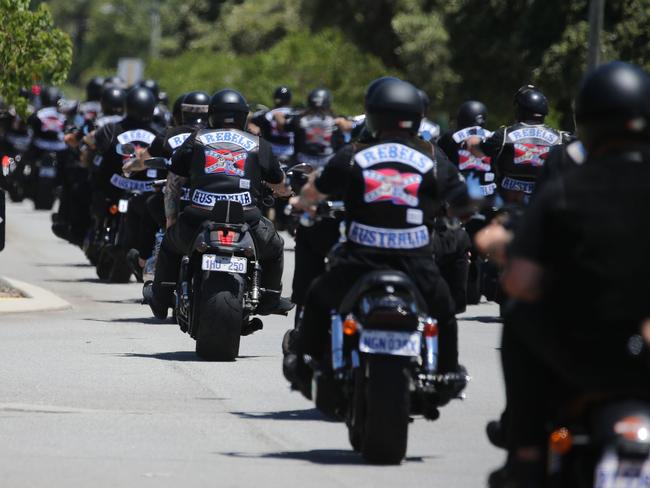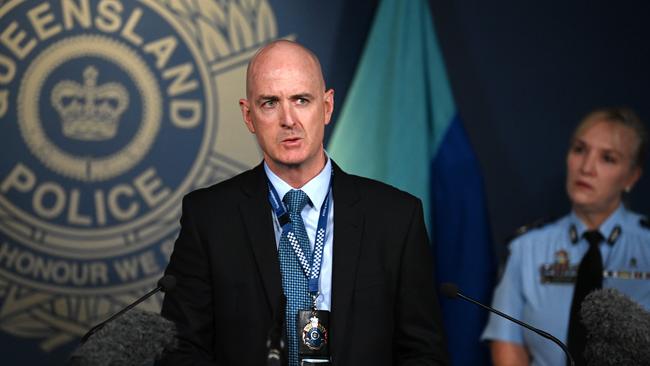Bikie recruiting focuses on victims of life-altering crises, Queensland police reveal
Tempted by promises of brotherhood and belonging, vulnerable Queenslanders are being coaxed into the violent criminal world of bikie gangs, but top cops reveal the reality is far less glamorous or rewarding, as membership numbers decline.
Police & Courts
Don't miss out on the headlines from Police & Courts. Followed categories will be added to My News.
The majority of Queensland’s bikies signed up to a criminal gang following a life-altering crisis, information provided by Queensland Police has revealed.
According to Queensland’s top bikie-busting cop, 58 per cent of outlaw motorcycle gang (OMCG) members joined a gang following a significant incident in their lives.
“They’re vulnerable and they think the gang is going to deliver them a sense of belonging and a sense of purpose,” Queensland Police Detective Acting Chief Superintendent Roger Lowe said.
He quickly set the record straight.
“They quickly find out it really doesn’t.
“It’s a real myth to suggest that these gangs are about bikes and gangs and brotherhood loyalty.
“It doesn’t deliver them what they expected and then they find themselves trapped and it’s difficult to get out.”
Detective Lowe, who heads the QPS Organised Crime Gangs Group, sat down for an exclusive interview with The Sunday Mail, where he detailed why young men continue to join these gangs under the unkept promises of brotherhood and loyalty.

He also revealed Queensland is bucking the national trend when it comes to bikie numbers, with the state recording a 12 per cent decrease in patched members over the past five years.
Detective Lowe wouldn’t detail specific numbers, however said it was the job of a dedicated team to look at movements within Queensland’s bikie gangs.
“We’re very thorough as to who we identify as a patched member, who we identify as an associate, who is an unconfirmed member and who have left gangs and have disaffiliated … Over five years, there’s been a 12 per cent decline in patched membership.”
Detective Lowe said the biggest success comes when people disaffiliate from a gang altogether.
He admitted this is a tough move for many.
“We know when a person leaves an OMCG, their criminal offending reduces significantly, there’s less harm to the community and less victims of crime,” he said.
“It’s difficult (to leave a gang), but it’s difficult being in a gang.
“When you’re in a gang, you’re paranoid of violence towards you, you’re paranoid of police knocking on your door. You’re committed to the gang culture and serving the needs of others above you.”
Griffith School of Criminology and Criminal Justice Associate Professor Justin Ready said it was not uncommon for gang members to get sucked into committing offences they may not have committed alone.

“It may drive them to a life course of persistent offending, gangs push people into this mentality of needing to belong,” Associate Prof Ready said.
“We also know that people seek out others that have similar ways of dealing with problems and those who have gone through similar events – it’s this idea that birds of a feather flock together and it’s definitely a pattern that you’ll find when those individuals will often commit crimes together.”
It’s this mentality that Detective Lowe hopes to curb through the QPS Bikie Exit Program, which sees OMCG members trying to leave a life of criminality behind.
“There’s greater risks and greater consequences of being in a gang than getting out,” Detective Lowe said.
“Those who make the decision to leave and get a better pathway tell us they have better relationships with their families, better chances of being employed (and) they finally confront themselves with the mental health impacts of living in a gang.”




